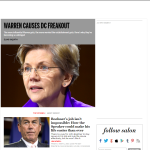Late last month the Israeli Consulate in New York held a Twitter-based news conference, inviting anyone to ask questions of the Israeli government about the conflict in Gaza. While activity around the conference blossomed, President-elect Barack Obama’s Twitter account has had little to say since Election Day last year.
The conflict in Gaza has become a growing international issue. Israel only recently sent in ground troops as part of Operation Cast Lead, while Hamas’s missiles have slowly made their way deeper into Israel than ever before. Though the Israeli government has declared a cease-fire for the operation, the conflict — and the conversation surrounding it — has continued. The repercussions have become global as supporters on both sides broadcast their sentiments publicly over the Internet.
Since the beginning of Operation Cast Lead, Twitter, a micro blogging service that limits posts to 140 characters, has been a major forum for users to constantly debate and report on the conflict, marking relevant comments with the hash-tag #gaza in order to indicate the ongoing conversation. David Saranga, the consul of media and public affairs for the Israeli Consulate in New York, took notice of the conversation.
…
Read the rest of my article about Twitter’s potential to change the face of public policy at UPI.com.





























Was just reading the Q and A sioetcn in the back of The Orchid Thief where Orlean was talking about the temporary relationships creative non-fiction and reportorial writing breeds. She talked about a ten year-old boy who thought that attention and interest from a reporter meant the reporter was truly attenuated and interested in his world and when she was done and leaving to write the story, he asked if she would be coming back tomorrow to which she told him it was over. He was crushed, and she felt like awful. The mind of a young and naive point of reference.Later